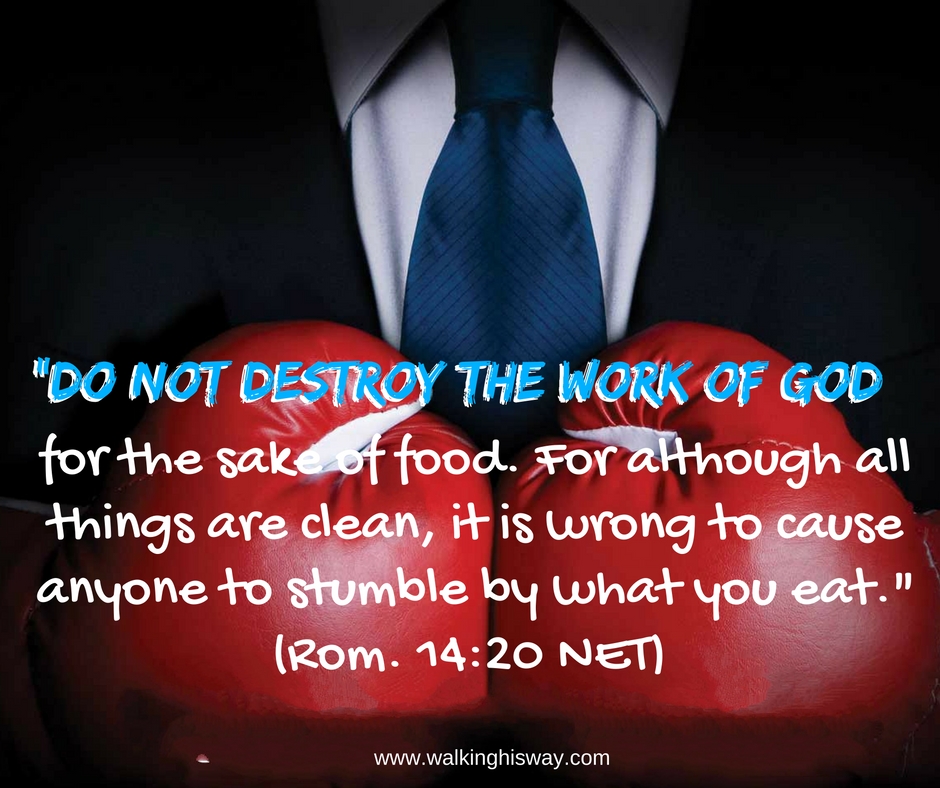 Rom 14:20 Do not destroy~~ the work of God for the sake of food. For although all things are clean, it is wrong to cause anyone to stumble by what you eat.
Rom 14:20 Do not destroy~~ the work of God for the sake of food. For although all things are clean, it is wrong to cause anyone to stumble by what you eat.
What motivates a new or weaker brother to give up and return to a sinful behavior? For some, any excuse will suffice. The mature believer strives to live “above reproach” (1 Tim 3:2) so as not to become an excuse for a new believer to fall back into sin.
Paul lays the foundation for relationships within the church. Believers must “pursue the things which make for peace and the things by which one may edify another” (Rom 14:19). They must be “diligent to preserve the unity of the Spirit in the bond of peace” (Eph 4:3).
The Roman Christians were doing just the opposite. They were told to stop or cease destroying “the work of God for the sake of food.” Just as in the Corinthian church, their “meetings [did] more harm than good” (1 Cor 11:17NIV)! The command to “cease destroying” (Gk. “demolish, dissolve”) implies the destruction was already happening. It seems ridiculous to think that they would destroy the church over an issue like eating certain foods. Some were flaunting their right to eat whatever they wanted, while others where just as adamant about criticizing and judging those who ate such food as unworthy of the name of Christ.
Paul clarified that both sides were equally sinful. In the first place, “all things are clean,” so the believer has the right to eat any food, even the food offered to idols. God declared such food to be “clean” because man-made idols were nothing. “What God has made clean, you must not consider ritually unclean!” (Acts 10:14–15). Ten years after the ascension, Peter still did not feel free to eat certain foods, in spite of a specific command from God! Apparently, many in the church at Rome still had Peter’s attitude, so the issue against Gentile believers must have been merciless.
Paul condemned this selfish thinking as “evil” (i.e., “troublesome, injurious, destructive”) and concluded, “It is good neither to eat meat nor drink wine nor do anything by which your brother stumbles or is offended or is made weak” (Rom 14:21). The principle is far broader than just eating meat: “Now food will not bring us close to God. We are no worse if we do not eat and no better if we do” (1 Cor 8:8).
We cannot improve upon God’s gift of righteousness. When we choose to judge and believe we are more spiritual than another because of our practices, we only deceive ourselves and bring chastisement upon ourselves.
“Lord Jesus, thank You for loving each of us to the extent of giving up the glory of being God to save us. In that same attitude, I am seeking Your guidance to avoid causing a brother to sin because of my liberty in Christ.”
In order to practice this command today, I am going to …
For a year’s daily devotional of these Bible studies, order a copy of the book Walking His Way at Branches Publications for your copy or download the free Walking His Way Android App.
